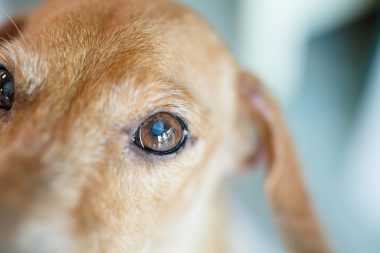Argentine court recognizes visitation agreement for dogs in divorce settlement

[ad_1]
summary
Summary: A family court in San Isidro, Argentina, has recognized a visitation agreement for two dogs in the event of a divorce Colony. This decision is significant because it dealt with the care of pets in divorce while recognizing that they are sentient beings and members of a polyspecies family, not just property.
Court-approved joint custody or visitation arrangements for companion animals a A growing fashion, but is still relatively rare. This decision was the first of its kind in Argentina and dealt with “The legal void regarding intersex family planning“.
Animals are also affected by divorce
in Unpublished decision And in September 2022, Judge Diana V. Sika agreed on the joint visit of two dogs in the application for divorce, noting that “animals, especially pets, are sensitive beings, they feel, yearn, rejoice, suffer, and acquire habits. There is no doubt that the change brought about by the separation of the spouses will affect them as well.

The visit was arranged by the former couple, who agreed on what was best for their dogs. In addition to providing for joint visitation, the agreement stipulated that each spouse would have primary possession of a dog. In an interesting twist, the preferences of the dogs, named Kyara and Popeye, were also taken into account. One of the couple told an Argentine newspaper Clarin:”Each one of them chose one of us to live with.”
“Everything that is not prohibited by law is permitted:” The courts must address intersex families
In her ruling, Justice Seka noted that—in the absence of specific regulations—courts must provide answers to questions regarding the status of non-human family members in divorce cases, noting that anything not prohibited by law is permissible, as long as the equity principle is followed:
Although our legal system has not yet advanced in such a way as to be able to foresee and/or regulate the situation in which, after the dissolution of the union, those members who are also part of the family will be placed and joined – in this case two dogs; Popeye and Kiara – This is an undeniable fact and must be resolved in those of us who have a duty to make a response, for it is known that whatever is not prohibited by law is permitted, even in its absence. of the specific regulations that determine it. The principle of this is the principle of fairness (Article 16 of the National Law) and the maximum is not to infringe on the rights of others.
Her observation that courts have a duty to intervene when there is an organizational vacuum mirrors the situation in the United States, where judges in divorce and annulment proceedings often have discretion in how property is divided—which can take into account animal interests even in the event of a divorce. absence specific legislation asking them to do so.

Judge Seca continued:
Thus, we can say that it is known that animals, especially domestic animals, are sensitive beings that feel, yearn, rejoice, suffer, and acquire habits. There is no doubt that the change brought about by the separation of animals from one another. The couple will also influence them and their owners will be in the best position to watch their interests. This understanding has been accepted in some countries such as Spain, as well as in our jurisprudence, as stated by the litigants in this case. . .
Its reference to Spain relates to the fact that it is Updating its civil law in 2021 to make it clear that animals are not “things” or “movable property”, but rather “feeling organisms”. In the same year – regardless of the change in civil law – a Spanish court Grant joint custody of the dogin a judgment that for the first time moved beyond the traditional property paradigm in favor of a relational framework that recognized the emotional bond between Plaintiff and animal.
Judge Seca also noted that the section of civil and commercial law in Argentina dealing with elements that may be included in divorce settlements is not exhaustive, thus “leaving the door open” for actions such as the one before her regarding the custody of the two dogs:
Furthermore, in the divorce process, we currently have Section 439 of the CCyC Code, which indicates the effects of divorce and indicates the various points that the spouses may dispose of through the regulatory agreement, which is not exhaustive, and thus leaves the door open for that. So that other issues of concern can be addressed. The parties to this lawsuit have made good use of it, and have agreed on the relevant issues relating to Popeye and Kiara.
A bill that would recognize animals as “non-human natural persons”
Attorney Brian Noble, who had the idea of including a dog welfare agreement in the divorce petition, noted that in addition to establishing important case law on the interspecies family, the ruling drew attention to a The bill is before the Argentine Congress That will ensure that the interests of the pet are taken into account in divorce cases. Tell Clarin:
This is the first time that the Argentine judicial system has confirmed visitation arrangements for animals in the context of divorce. This raises awareness to amend the civil and commercial code, as happened in Spain, where the welfare of pets must be taken into account in the event of separation.
This bill would also make it clear that animals are legal and “natural, non-human” subjects. Persons‘, instead of ‘things’.
Judicial diaries She stated that the bill, which it was It was introduced in February 2023includes the following text:
Non-human animals, of any kind, are natural, non-human persons, and therefore subject to the law. Their consciousness is fully acknowledged and they are excluded from any other description that would prejudice their recognized dignity. As such, they are entitled to enjoy the rights of themselves and of all those recognized by this law and the special laws, as well as the right not to be subjected to mistreatment by human beings. They must exercise their rights through human or legal persons who have an interest in defending those rights.
It is critical that the bill include a statement on implementation and standing, explicitly recognizing the right of humans or other interested parties to defend the legal interests of animals in court. Including a clear enforcement mechanism for the exercise of their rights – whether through third parties or the animals themselves – is a key component of legislation that seeks to raise the bar on their rights. The legal status of animals By ensuring the effectiveness of legal protection.
Another positive element of the bill is that – unlike some pieces of legislation that relate only to pets – it does not differentiate between categories of animals and includes the phrase “whatever kind” in relation to animals as subjects of law.
This bill is before Congress and we still have to see its ultimate fate, but hopefully it will pass into law and create positive changes for animals in Argentina, as well as the impetus for similar efforts around the world.
Conclusion
This decision recognizing animals as members of polyspecies families follows other recent animal rulings in Argentina, including two separate cases in which courts have found animals to have rights: 55 dachshunds rescued (interestingly, their unborn puppies) in August 2022 and A cougar named Lola Lemon in July 2022. These decisions preceded the historical cases of A The chimpanzee named Cecilia And Orangutan named Sandrawho were recognized as inhumane legal persons by Argentine courts in 2016 and 2014, respectively.

In the United States and around the world, an increasing number of courts are considering pets’ interests in divorce and annulment proceedings, rather than treating them as mere property. In addition, many states have enacted “pet custody” laws that either enable or explicitly require courts to consider the best interests of animals during such disputes.
The Animal Legal Defense Fund is working to get it passed legislation Meeting the needs of pets in divorce proceedings and filing friend briefs In custody disputes involving animals that urge courts to consider their welfare rather than treating them as mere property.
Further reading
References
[ad_2]
Source link





